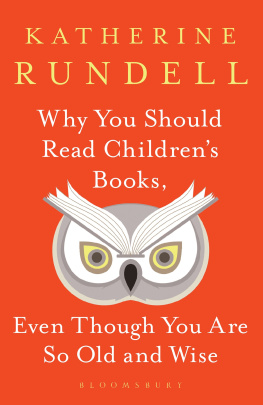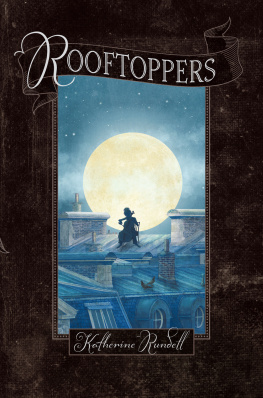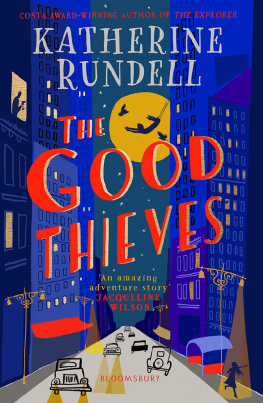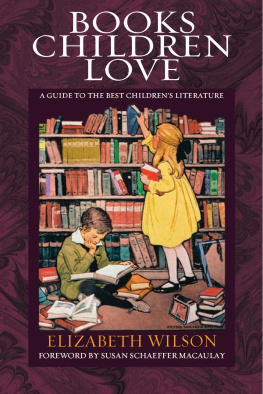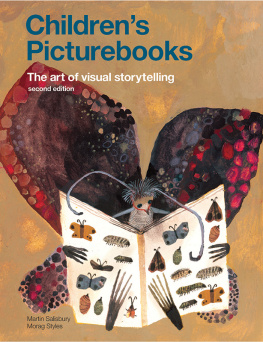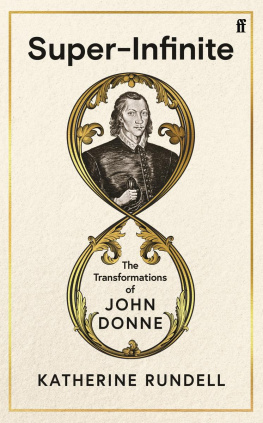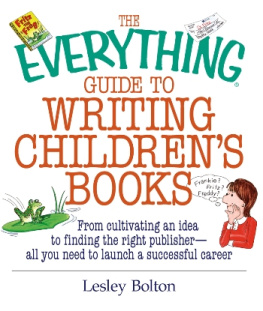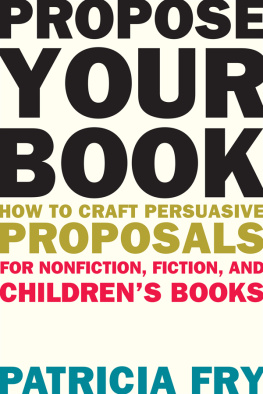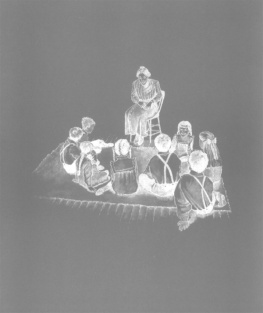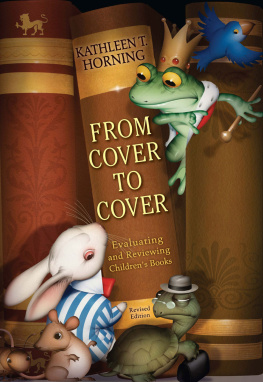
Why You Should
Read Childrens
Books, Even
Though You Are
So Old and Wise
Books by Katherine Rundell
The Girl Savage
Rooftoppers
The Wolf Wilder
The Explorer
The Good Thieves
For younger readers
One Christmas Wish

Contents
The place I loved most as a child was the public library in Mount Pleasant, Harare, Zimbabwe. The childrens section had seemingly not been restocked since the 1950s, and it smelt of the leaking roof and the ferocious sun which flooded, impeded only by dust, through the glass doors. The spines of the books were sun-bleached, and some had been taken out so rarely the fines on the returns slip were listed in shillings. It was there that I read my way through almost every book on the two dozen shelves: shelves which contained profoundly unlikely adventures, an enormous quantity of mediocre horse stories, and a book which had been shelved there by mistake in which the heroine has sex in a gondola. And, too, some of the greatest fiction ever written for anyone of any age at all.
Childrens fiction has a long and noble history of being dismissed. Martin Amis once said in an interview: People ask me if I ever thought of writing a childrens book. I say, If I had a serious brain injury I might well write a childrens book. There is a particular smile that some people give when I tell them what I do roughly the same smile Id expect had I told them I make miniature bathroom furniture out of matchboxes, for the elves. Particularly in the UK, even when we praise, we praise with faint damns: a quotation from the Guardian on the back of Alan Garners memoir Where Shall We Run To? read: He has never been just a childrens writer: hes far richer, odder and deeper than that. So thats what childrens fiction is not: not rich or odd or deep.
Ive been writing childrens fiction for more than ten years now, and still I would hesitate to define it. But I do know, with more certainty than I usually feel about anything, what it is not: its not exclusively for children. When I write, I write for two people: myself, age twelve, and myself, now, and the book has to satisfy two distinct but connected appetites. My twelve-year-old self wanted autonomy, peril, justice, food, and above all a kind of density of atmosphere into which I could step and be engulfed. My adult self wants all those things, and also: acknowledgements of fear, love, failure; of the rat that lives within the human heart. So what I try for when I write failing often, but trying is to put down in as few words as I can the things that I most urgently and desperately want children to know and adults to remember. Those who write for children are trying to arm them for the life ahead with everything we can find that is true. And perhaps, also, secretly, to arm adults against those necessary compromises and necessary heartbreaks that life involves: to remind them that there are and always will be great, sustaining truths to which we can return.
There is, of course, 1 Corinthians 13: Now that I have become a man, I have put away childish things. But the writing we call childrens fiction is not a childish thing: childish things include picking your nose and eating the contents, and tantruming at the failure to get your own way. The 45th President of America is childish. Childrens fiction has childhood at its heart, which is not the same thing. Childrens fiction is not written by children; it stands alongside children but is not of them.
(That childrens fiction isnt written by children is probably for the best. I completed my first novel when I was about eight years old, as a birthday present for my father. I sewed a cover for it in blue silk and embroidered it with stars. It was called Sallys Surprise. The titular surprise, I find on rereading it, is presumably that there was no plot. Nothing happens. It was, in this sense, avant-garde and Waiting for Godot-esque. It had, though, a lot of descriptions of horses, which is less so.)
There is, though, a sense among most adults that we should only read in one direction, because to do otherwise would be to regress or retreat: to de-mature. You pass Spot the Dog, battle past that bicephalic monster PeterandJane; through Narnia, on to The Catcher in the Rye or Patrick Ness, and from there to adult fiction, where you remain, triumphant, never glancing back, because to glance back would be to lose ground.
But the human heart is not a linear train ride. That isnt how people actually read; at least, its not how Ive ever read. I learned to read fairly late, with much strain and agonising until, at last and quite suddenly, the hieroglyphs took shape and meaning: and then I read with the same omnivorous un-scrupulosity I showed at mealtimes. I read Matilda alongside Jane Austen, Narnia and Agatha Christie; I took Diana Wynne Joness Howls Moving Castle with me to university, clutched tight to my chest like a life raft. I still read Paddington when I need to believe, as Michael Bond does, that the worlds miracles are more powerful than its chaos. For reading not to become something that we do for anxious self-optimisation for it not to be akin to buying high-spec trainers and a gym membership each January all texts must be open, to all people.
The difficulties with the rule of readerly progression are many: one is that, if one followed the same pattern into adulthood, turning always to books of obvious increasing complexity, youd be left ultimately with nothing but Finnegans Wake and the complete works of the French deconstructionist theorist Jacques Derrida to cheer your deathbed.
The other difficulty with the rule is that it supposes that childrens fiction can safely be discarded. I would say we do so at our peril, for we discard in adulthood a casket of wonders which, read with an adult eye, have a different kind of alchemy in them.
*
W.H. Auden wrote: There are good books which are only for adults, because their comprehension presupposes adult experiences, but there are no good books which are only for children.
I am absolutely not suggesting adults read only, or even primarily, childrens fiction. Just that there are some times in life when it might be the only thing that will do.
There are of course many books marketed for children which wouldnt repay adult attention; these are often books which rely for their power largely on fart jokes, on the sheer tantalising fact of dinosaurs and on the physical gorgeousness of fairies. I certainly dont want to dismiss the ancient power of the fart joke there are fart jokes dating back to 1900 BC but Im interested, here, in the texts for children that acknowledge the right of the child to have as rich a story as the adult writing it would demand for themselves. Not only the classics: there are such riches of new work every year. Children will not be patient if you pontificate or meander or self-congratulate. Rather, childrens fiction necessitates distillation: at its best, it renders in their purest, most archetypal forms hope, hunger, joy, fear. Think of childrens books as literary vodka.
What is it like to read as a child? Is there something in it the headlong, hungry, immersive quality of it that we can get back to? When I was young I read with a rage to understand. Adult memories of how we once read are often de-spiked by nostalgia, but my need for books as a child was sharp and urgent, and furious if thwarted. My family was large, and reading offered privacy from the raucous, mildly unhinged panopticon that is living with three siblings: I could be sitting alongside them in the car, but, in fact, it was the only time when nobody in the world knew where I was. Crawling through dark tunnels in the company of hobbits, standing in front of oncoming trains waving a red flag torn from a petticoat: to read alone is to step into an infinite space where none can follow.
Next page
